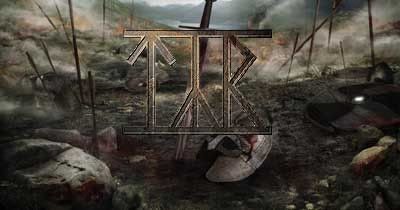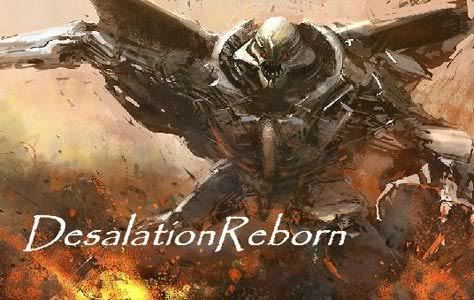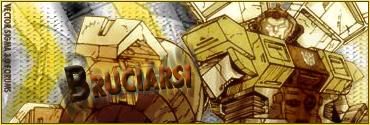Transformers and More @ The Seibertron Store
Details subject to change. See listing for latest price and availability.


Tammuz wrote:why is there such a frankenstein complex about it?
Creature SH wrote:People don't really understand cloning, anyway.
All a clone would be would be is younger twin.
Oh noes ! Twins ! Run to the ills !

Creature SH wrote:Beautifully unethical, too, though.


Tammuz wrote:if the diseases is genentic then the clone will have the same problems, however you could take your DNA, PCR it up, and recombine it with some one whose doesn't have the mutant(aslong as we know wheare the mutation is), and then grow up just the organ you need. Probably by artificially repressing some HOX genes and their homologues.
cloning the whole of you would be a waste, and not really very useful since you'd have to wait almost 2 decades for it to be ready. just growing the individual spare parts would be better. and probably more ethically acceptable(seeing as i can't rationally justify my arm having a separate soul)

Senor Hugo wrote:
Or would offer a good option for people looking to have a kid but doesn't want to adopt, can't get artificially inseminated, and the like.
But then that brings up entirely different arguments, such as "why are we building(cloning) more humans when there are so many in the world already?"

Tammuz wrote:
and as for the second point why are we conceiving more humans when their are so many in world already?

Zombie Starscream wrote:I have heard that cloning an animal (or a human) is very hard. A lot of times the clone dies while an embryo or a fetus, or dies soon after birth. If you are lucky to have the clone survive, a lot of times its genes don't work properly. They either fail to "activate" at all or they "activate" too much. Or they are defective, and the products they produce are defective. If they get through all this, they will eventually die young. Their telemeres (the things at the end of chromosomes that determine lifespan) are already shortened. If the clone was made from the cells taken from an animal 3 years old, that clone will have 3 years deducted already from its own lifespan. Plus for some reason clones tend to get really obese. These are the major reasons why cloning humans is wrong.

Tammuz wrote:Zombie Starscream wrote:I have heard that cloning an animal (or a human) is very hard. A lot of times the clone dies while an embryo or a fetus, or dies soon after birth. If you are lucky to have the clone survive, a lot of times its genes don't work properly. They either fail to "activate" at all or they "activate" too much. Or they are defective, and the products they produce are defective. If they get through all this, they will eventually die young. Their telemeres (the things at the end of chromosomes that determine lifespan) are already shortened. If the clone was made from the cells taken from an animal 3 years old, that clone will have 3 years deducted already from its own lifespan. Plus for some reason clones tend to get really obese. These are the major reasons why cloning humans is wrong.
actually that's not held up in practice; Dolly actually had extended telomeres, as did all of the cloned cattle, which is quite interesting and probably could lead to anti-aging applications.
I assume that their is some mechanism in the ovum that extends telomeres/tandem repeats, cos if their wasn't then the chomosome from the sperm/ovum would also only have as as many tandem repeats as its pearant at the time of it's creator, which means that the maternal chomosome would always have longer telomere's than the father(as a lifetimes supply of ovums are produced in female foetuses and generally go through about 6 divisions, but sperm are created daily so have roughly the same number of diviosions as the rest of the cells in an organism.)
I totally agree that the many attempts are problematic, though this is the first i've heard of the obesity problem...

Grendel wrote:rather have cybernetics anyway, why grow a new one, when you can build a better one?
then again, anyone read transmetropolitan? two words, long pig.

So the ovum has some way of extending telemeres, even in the nucleus taken from a donor's skin cell?Tammuz wrote:Zombie Starscream wrote:I have heard that cloning an animal (or a human) is very hard. A lot of times the clone dies while an embryo or a fetus, or dies soon after birth. If you are lucky to have the clone survive, a lot of times its genes don't work properly. They either fail to "activate" at all or they "activate" too much. Or they are defective, and the products they produce are defective. If they get through all this, they will eventually die young. Their telemeres (the things at the end of chromosomes that determine lifespan) are already shortened. If the clone was made from the cells taken from an animal 3 years old, that clone will have 3 years deducted already from its own lifespan. Plus for some reason clones tend to get really obese. These are the major reasons why cloning humans is wrong.
actually that's not held up in practice; Dolly actually had extended telomeres, as did all of the cloned cattle, which is quite interesting and probably could lead to anti-aging applications.
I assume that their is some mechanism in the ovum that extends telomeres/tandem repeats, cos if their wasn't then the chomosome from the sperm/ovum would also only have as as many tandem repeats as its pearant at the time of it's creator, which means that the maternal chomosome would always have longer telomere's than the father(as a lifetimes supply of ovums are produced in female foetuses and generally go through about 6 divisions, but sperm are created daily so have roughly the same number of diviosions as the rest of the cells in an organism.)
I totally agree that the many attempts are problematic, though this is the first i've heard of the obesity problem...
Zombie Starscream wrote:So the ovum has some way of extending telemeres, even in the nucleus taken from a donor's skin cell?Tammuz wrote:Zombie Starscream wrote:I have heard that cloning an animal (or a human) is very hard. A lot of times the clone dies while an embryo or a fetus, or dies soon after birth. If you are lucky to have the clone survive, a lot of times its genes don't work properly. They either fail to "activate" at all or they "activate" too much. Or they are defective, and the products they produce are defective. If they get through all this, they will eventually die young. Their telemeres (the things at the end of chromosomes that determine lifespan) are already shortened. If the clone was made from the cells taken from an animal 3 years old, that clone will have 3 years deducted already from its own lifespan. Plus for some reason clones tend to get really obese. These are the major reasons why cloning humans is wrong.
actually that's not held up in practice; Dolly actually had extended telomeres, as did all of the cloned cattle, which is quite interesting and probably could lead to anti-aging applications.
I assume that their is some mechanism in the ovum that extends telomeres/tandem repeats, cos if their wasn't then the chomosome from the sperm/ovum would also only have as as many tandem repeats as its pearant at the time of it's creator, which means that the maternal chomosome would always have longer telomere's than the father(as a lifetimes supply of ovums are produced in female foetuses and generally go through about 6 divisions, but sperm are created daily so have roughly the same number of diviosions as the rest of the cells in an organism.)
I totally agree that the many attempts are problematic, though this is the first i've heard of the obesity problem...


Tammuz wrote:Dreadwind wrote:One problem I see with cloning is what's always shown with it in Scifi shows. We lack the technology to prevent eventual degredation.
sorry, what eventual degradation?
Dreadwind wrote:Tammuz wrote:Dreadwind wrote:One problem I see with cloning is what's always shown with it in Scifi shows. We lack the technology to prevent eventual degredation.
sorry, what eventual degradation?
Things degrade over time. The way it's usually looked at is if you make a copy, of a copy, of a copy, eventually down the line, the copies end up having problems. It happens in copy machines with paper.

Coolness!Tammuz wrote:Zombie Starscream wrote:So the ovum has some way of extending telemeres, even in the nucleus taken from a donor's skin cell?Tammuz wrote:Zombie Starscream wrote:I have heard that cloning an animal (or a human) is very hard. A lot of times the clone dies while an embryo or a fetus, or dies soon after birth. If you are lucky to have the clone survive, a lot of times its genes don't work properly. They either fail to "activate" at all or they "activate" too much. Or they are defective, and the products they produce are defective. If they get through all this, they will eventually die young. Their telemeres (the things at the end of chromosomes that determine lifespan) are already shortened. If the clone was made from the cells taken from an animal 3 years old, that clone will have 3 years deducted already from its own lifespan. Plus for some reason clones tend to get really obese. These are the major reasons why cloning humans is wrong.
actually that's not held up in practice; Dolly actually had extended telomeres, as did all of the cloned cattle, which is quite interesting and probably could lead to anti-aging applications.
I assume that their is some mechanism in the ovum that extends telomeres/tandem repeats, cos if their wasn't then the chomosome from the sperm/ovum would also only have as as many tandem repeats as its pearant at the time of it's creator, which means that the maternal chomosome would always have longer telomere's than the father(as a lifetimes supply of ovums are produced in female foetuses and generally go through about 6 divisions, but sperm are created daily so have roughly the same number of diviosions as the rest of the cells in an organism.)
I totally agree that the many attempts are problematic, though this is the first i've heard of the obesity problem...
i assume so, otherwise i can't see how a species survives more than one generation.
EDIT: *goes and does some actual research*
well i'm almost right, stem cells produce telomerase, and enzyme that extends telomeres. so from conception until differention you get extension.
Tammuz wrote:Dreadwind wrote:Tammuz wrote:Dreadwind wrote:One problem I see with cloning is what's always shown with it in Scifi shows. We lack the technology to prevent eventual degredation.
sorry, what eventual degradation?
Things degrade over time. The way it's usually looked at is if you make a copy, of a copy, of a copy, eventually down the line, the copies end up having problems. It happens in copy machines with paper.
you'd be surprised how much f a non-issue that is with DNA, we(and most organisms) have alot of DNA repair mechanisms, if we didn't cancer and mutation would run rife and you'd be lucky if you made it out of the womb. in addition the genetic code is degerative anyway, that is it has multiple ways encoding the same thing, and not only that but we have lots of genes that do the same damn thing, as well as two copies of each.
in fact that DNA is so un-prone to this kind of thing is what makes PCR such a valuble molecular tool.
nature beats technolgy. hands down.
Registered users: Bing [Bot], blokefish, Glyph, Google [Bot], Google Adsense [Bot], MSN [Bot], Ziusundra
 [ Click to attempt signal recovery... ]
[ Click to attempt signal recovery... ]